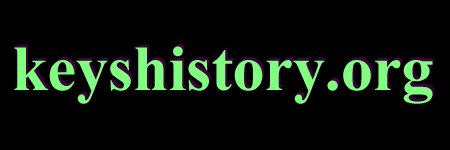
General History of Indian Key
Indian Key Property from Early Deeds
By Jerry WilkinsonThe following are my brief interpretations of some of the legal entries from Monroe County Deed books A, B, and C. Of course they are handwritten and are subject to errors of transcription. Any serious researcher should consult the actual microfilm of these deed books.
Shown in chronological order they are:
-Nov. 13, 1828. Silas Fletcher sold to Thomas Gibson all his rights, title and interest to Indian Key for $2,500.
-March 10, 1830. Peter Gardere, James Motte, David Willians & Philip Fontaine swore that on or before January 1825 Joseph Prince actually inhabited and cultivated a track of public land on Indian Key.
-July 30, 1830. Phebe Taylor (free colored) sold to Thomas Gibson a house on the west side of Indian Key for $1.
-Aug 6, 1830. James Egan sold to Thomas Gibson a house on Front Street for $1. Note, this is the only mention of a street name in the deed books.
-Nov. 19, 1830. William Johnson sold to Jacob Housman a one-story building with two rooms and kitchen for $30.
-June 20, 1831. Joseph and Eliza Prince mortgaged their property on Indian Key to Richard Prince for $2,309.91 to be repaid in 3 years.
-July 5, 1831. Thomas and Ann Gibson sold to Jacob Housman a one story store, a 2-story house, a 9-pin alley, billiard room and table, outhouse and kitchen for $5,000.
-Aug. 25, 1831. James Egan indebted to Jacob Housman for $324.20, signed over his home to Jacob Housman, but it would revert to Egan if repaid within one year.
-Nov. 20, 1833. Joseph and wife, Eliza, mortgaged all rights, titles and interest on Indian Key to Joseph and Charles Lawton to be repaid January 1, 1836 for $769.89.
-Feb. 18, 1835. Reason Duke sold to Jacob Housman one-half of his home and kitchen for $625 plus interest, but he could purchase it back within 5 years for $625 with interest. (Note - most kitchens were built separate from the main house.)
-Mar. 7, 1835. James Egan sold to Jacob Housman one house and kitchen for $700.
-April 23, 1835. Jacob and Ann Housman sold to Charles Howe the lot and house formerly occupied by James Egan and the house and kitchen formerly occupied by James Pent for $580 for the lot and $580 for the house.
-May 26, 1835. Reason Duke sold to Jacob Housman the other half of his house (Formerly owned by Dr. H. S. Waterhouse.) for $600.
-Nov. 3, 1835. Joseph Prince sold to Jacob Housman all his rights and titles to Indian Key for $5,000.
-Nov. 15, 1836. Alex. Snyder of Canada sold to William. Marvin all his rights, titles and interest to Indian Key for $20. (Also sold Duck Key for $505.)
-Mar. 19, 1840. Jacob Housman mortgaged Indian Key and buildings (except those of Charles Howe) to Smith Mowry, Jr. of Charleston for $8,583 at 10%. Also Housman mortgaged the same to Joseph Lawton for $5,726.62.
-Aug. 7, 1843. George Center of St. Augustine sold to James Andrews of Key West a certain frame building dwelling house on Indian Key for $100.
-Jan. 15, 1844. Indian Key (except that of Charles Howe) sold at public auction in Key West to Smith Mowry Jr. and Joseph Lawton of Charleston for $355.
-Jan. 26, 1852. Joseph Lawton sold to Smith Mowry Jr. all his rights and title to Indian, Lignumvitae and North Matecumbe Keys with all buildings for $1,250. Also included the store on Indian Key run by W. H. Hilliard.
-June 3, 1907. Heirs of Charles Hine sold to Hine Bros. Corp. land including Indian, Lignumvitae and Tea Table Keys for $1.
-June 30, 1909, Deed book Z, page 241. State sold Indian Key to Henry Flagler with deed going to Elizabeth Smith of Duval County. No price stated. [Probably the first legally enforceable land deed.]-
Use Back Arrow to return to reading Indian Key General History
